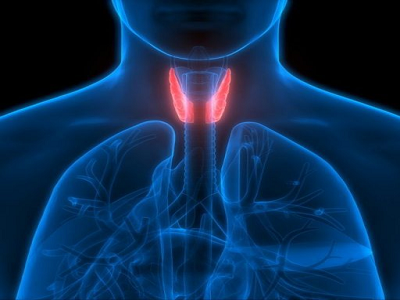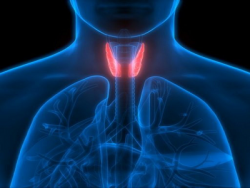Thyroid In Women
Hypothyroidism Symptoms in Women
Hypothyroidism symptoms in women can be different from those in men, teens, and children. However, the disease itself most often affects middle-aged or older women. This under active thyroid condition occurs when your thyroid gland stops producing enough hormones. Hashimoto thyroiditis is an autoimmune disease that commonly causes hypothyroidism. Radiation therapy can also trigger this condition.
The thyroid is a gland at the base of your neck that is shaped like a butterfly. It produces hormones that control your body’s use of energy. Your metabolism is dependent on having a normally functioning thyroid. Though it is rare, babies may be born with malfunctioning thyroids, or none at all, and young people on occasion will have an under active thyroid. Their symptoms might include poor growth, delayed tooth development, poor mental development, or slow puberty.
Hypothyroidism Symptoms in Women Differ From Symptoms in Men
In men, this disease may cause lethargy, a reduced sexual drive, and depression, as well as weakness in the muscles. It has been known to cause tenderness in a man’s breasts, swelling, and impotence. While it is rare to have thyroid cancer, if a man has tumors in his thyroid, it is usually malignant.
Hypothyroidism symptoms in women are many, though slow to develop. There are reasons why women suffer from this condition far more often than men do. For one thing, the biochemistry of their body is affected by their monthly cycles and accompanying hormonal fluctuations.
Women are more inclined to diet, and to try extreme methods for dropping pounds, that usually end up in binges, which causes a yo-yo effect. And their cravings for simple carbs … mainly chocolate … provide energy and satisfaction. Unfortunately, this also decreases the metabolic rate. Emotions are also a factor. We women have a tendency to internalize stress, which also triggers the need for more carbs and more sweets. Some researchers believe that the thyroid then makes too much of the hormone.
Though we rarely suspect hypothyroidism, the symptoms in women are many, in spite of the fact that it may take months, or even years, for them to appear. If it shows up during or after a pregnancy, or when you are in crisis, you might easily mistake it for depression. If the onset is late in life, you might assume you have a condition noted for memory loss and confusion, such as dementia or Alzheimer’s disease.






















































